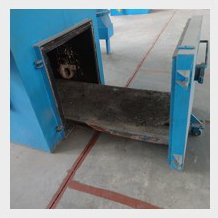Medical waste disposal is a critical aspect of healthcare that often goes overlooked. Improper disposal of medical waste can pose serious health and environmental risks. From infectious materials to hazardous chemicals, medical waste can be highly dangerous if not handled and disposed of properly.
The improper disposal of medical waste can lead to the spread of infectious diseases, injuries, pollution, and adverse health effects. It is important for healthcare facilities, as well as individuals who produce medical waste, to understand the hidden dangers of improper medical waste disposal and the best practices for its safe and proper disposal.
One of the major dangers of improper medical waste disposal is the spread of infectious diseases. Infectious waste, such as used needles, blood-soaked bandages, and cultures of infectious agents, can harbor harmful pathogens that can lead to the transmission of diseases like HIV, Hepatitis B, and other blood-borne infections. If medical waste is not disposed of properly, it can lead to the contamination of soil, water, and air, thereby posing a significant risk to public health.
In addition to infectious waste, medical facilities also generate hazardous chemical waste, such as mercury, formaldehyde, and chemotherapy agents. Improper disposal of these chemicals can result in potential harm to human health and the environment. Mercury, for example, can accumulate in the food chain and cause neurological damage, while chemotherapy agents can have harmful effects on the reproductive system and cause birth defects.
Improper medical waste disposal can also result in physical injuries to healthcare workers, waste handlers, and the public. Sharps, such as needles and scalpels, can cause needlestick injuries that may lead to the transmission of infectious diseases. Moreover, when medical waste is not properly managed, it can end up in public spaces, posing a risk of injury through direct contact or accidental exposure.
To mitigate the hidden dangers of improper medical waste disposal, it is crucial to adhere to proper medical waste management practices. Healthcare facilities should have comprehensive waste management programs in place, which include the segregation, packaging, and labeling of different types of medical waste. Additionally, they should work with licensed medical waste disposal companies to ensure that medical waste is treated and disposed of appropriately.
Individuals who produce medical waste, such as patients who self-administer medications or individuals who require home healthcare, should also be mindful of the proper disposal of their medical waste. It is important for them to follow guidelines on the safe disposal of sharps, medications, and other medical items to prevent the spread of infection and reduce the risk of injury.
In conclusion, the hidden dangers of improper medical waste disposal are significant and can have serious consequences for public health and the environment. It is crucial for healthcare facilities and individuals to understand the risks associated with medical waste and take the necessary steps to ensure its safe and proper disposal. By doing so, they can help to prevent the spread of infectious diseases, protect human health and the environment, and promote a safer and healthier society.



